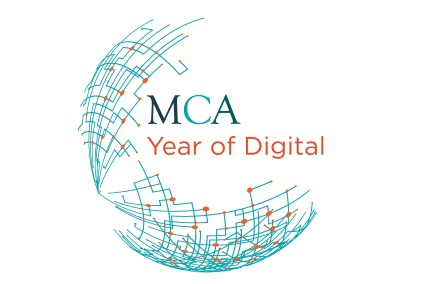A contentious topic that has emerged over the course of the Year of Digital is data ownership. Who should own data about us? Should we own it? Is there a difference between public sector and private sector data? What safeguards should be in place to protect us from misuse?
Fears about how government uses personal information were dramatized in the UK during the debate on identity cards. Scandals surrounding the NSA and the Snowden revelations have intensified those concerns globally. Even at a very prosaic level, tensions are ongoing between the protection of individual privacy and government’s ability to join up its data in order to provide a tailored and personalised service to individuals.
To some degree, the debate, up to now, has been rather less sharp around private sector data. You can opt out of a retail brand. You can’t opt out of the state. Yet for some contributors to our Digital Year, businesses’ use of data is bandit country. Whereas the laws governing property in advanced economies have hundreds of years of legal precedent behind them, the situation on data is much less clear. Critics of the status quo suggest that big corporations in particular exploit information asymmetry to secure ‘permissions’ from consumers to hold data – email address, home address, mobile number, age, buying preferences. This information becomes a valuable commodity, saleable by business, for a return the consumer never sees. Critics argue that this value should belong to the individual. Citizens should make their own data work for them.
Others just don’t really care. This is not precisely a generational thing. But there is a degree to which the data debate links to the issue of privacy. And here there seems little doubt that younger people tend to use social media to disclose more information about themselves than their forebears. This is not to say that there aren’t older people with a devil-may-care attitude on Instagram – or young people who share the concerns about data usage and the power it gives to corporations expressed in Dave Eggers book The Circle. But it is telling that at Young MCA events, audiences tended to split roughly half and half between those who wanted to own all their data and those who shrugged their shoulders.
The degree to which this is emerging and unpoliced terrain is noticeable from the different reactions people have to the use of social media information by business. If someone were to tweet about Japanese knotweed in their garden, but fail to mention it in their legal declarations when selling their house, it might be used against them. And given the visibility of tweets and the emerging body of case law, they would probably have limited defence. But what about using someone’s profile of Facebook friends to help determine credit ratings or suitability for a job?
Some people are horrified at the suggestion. Yet when I raised these issues in discussions with one Digital enthusiast, he was unsympathetic. “If I leave my curtains open at home,” he suggested, “then I can’t complain if people see me dancing naked in my living room. And if I leave my front door open, people are going to take my things.” Well, right on the first count: close those curtains! But even if I’m dumb enough to leave my door open, the person who takes my stuff is still a thief.
For some people, however, these analogies are completely irrelevant. They consider the issue with data in the public sector as similar to the situation with CCTV. Only wrongdoers need worry. And with regard to private sector data, businesses do take the trouble to gather and organise it. If customers then get value from it, then why should they care about the niceties of ownership?
What unites the perspectives of those who are critical of the status quo and those who are laid back about it is the notion that data has a value. For the critics, citizens are not necessarily seeing that value. For the more relaxed, it’s simply a question of retailers providing it – and if they don’t, people will stop using them.
However, what is obvious from both perspectives is that discussions about the relationship of data and value are in their infancy. Under normal conditions, an individual has a reasonable prospect of understanding what goods and services they will receive for the money they have. The transaction value of data is less easily calculated.
A shift in the dynamics of data ownership could be quite revolutionary. In the public sector, if citizens owned their own data, they could use the information to require the state to fulfil its responsibilities to them in a bespoke fashion. Services would be tailored to match the specific entitlements and need captured in an individual’s data. Citizens in turn would be responsible for exercising their prerogatives and making appropriate demands. This would shift power to citizens and make the dynamics of choice very real. In the private sector, consumers would exploit their data to seek the best deals from suppliers, either directly or through favoured third parties.
On the surface, what is needed to achieve these sorts of models is legislation and regulation. Yet what unites both sides of this debate is their scepticism about government’s ability to handle this complex issue with the necessary subtlety. The Digital Economy Act 2010 was out of date before it hit the statute book.
What government can do is foster a debate on these issues. Engaging with business, consumer groups and Digital experts, it can stimulate discussion and public consciousness. This would at the very least address some of the information asymmetries, between business, government and the general public, and more particularly between the digitally savvy, quite able to look after themselves, and the wider public. If those who are relaxed about data usage are right, then the debate will reveal that citizens already feel empowered, and are quite comfortable that their own demands for value keep businesses on their toes. If however citizens are frustrated by the status quo, then the debate will have been very beneficial. Businesses and departments of state may adjust their behaviours in order to avoid the necessity of regulation. In the commercial context, new business models to help people secure data value may emerge. And government will consider some regulatory intervention, but only in response to an evident need and as a last resort.
Written by Paul Connolly, MCA Think Tank Director, as part of the MCA Year of Digital.


